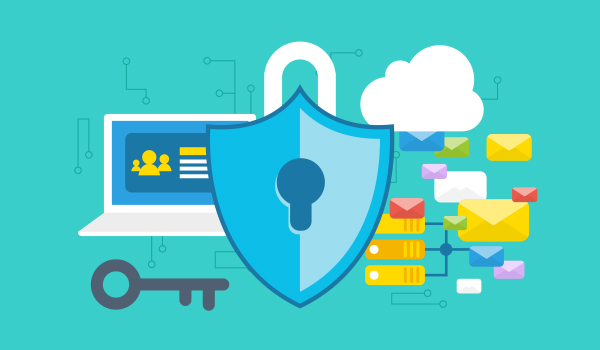With organizations and companies offering more online services and transactions, internet security is indeed becoming an essential necessity and also a priority in order to guarantee the safety of all sensitive information that gets transferred to legitimate online businesses. Hence, to maintain the privacy and security of customer information, companies need to add SSL certificates to their websites in order to bring about secure online transactions. Digital certificates function as the backbone of internet security. This is where SLL certificates prove to play a very important role. Let us now take a look at what exactly is an SSL certificate and its benefits, the different types of SSL certificates, and how an SSL certificate works.

SSL Certificate: Definition
Secure Sockets Layer (SSL) certificates, also known as digital certificates, help in establishing an encrypted connection between a user’s computer or a browser and website or a server. The SSL connection is capable of protecting sensitive data from being intercepted from non-authorized parties. This data gets exchanged during each visit, which is known as a session.
How do SSL Certificates Work?
An SSL certificate works in the following manner:
A server or browser tries to connect to a website protected with SSL. The server/browser requests that the web server identifies itself.
The web server sends the server/browser a copy of its SSL certificate.
The server/browser examines whether or not it trusts the SSL certificate. If so, it then sends a message to the web server.
A digitally signed acknowledgment is sent back by the web server in order to start an SSL encrypted session.
Encrypted data is shared between the server/browser and the web server
Types of SSL Certificates
Given below are three types of SSL Certificates:
Domain Validated (DV) Certificates
These certificates are issued only after the registration of the domain gets verified. A website secured with this certificate offers a locked padlock in the address bar. They help in validating only domain ownership and can be attained anonymously. The DV certificate does not tie a domain to a place, person, or entity. It is for this reason that several websites using DV certificates are linked to fraudulent activity. It is recommended that this particular type of certificate should be used where security is not a concern, such as protected internal systems.
Extended Validation (EV) Certificates
Online users mostly prefer using these certificates as they are available with the most comprehensive verification checking, which comprises of domain verification and also crosschecks that tie the entity to a particular physical location. This type of verification leaves behind a comprehensive paper trail providing customers with an option if fraud takes place while transacting on that website. EV certificates are recognized with organization name, a locked padlock, and occasionally with the country ID in the web address bar in most major browsers.
Organization Validated (OV) Certificates
For OV certificates, besides domain ownership, the organization is also validated, and it is possible to view the certificate details on most major web browsers, offering online users the opportunity to determine if the website they are on is legitimate or not.
Benefits of Having an SSL Certificate
SSL Certificates provide the following benefits:
Delivers Trust
SSL providers deliver a trust seal just like web browsers that give visual indications like a green bar or a lock icon, which enables the visitor to believe their connection is truly secured.
Essential for PCI Compliance
To accept credit card details on your website, you will have to pass specific audits that prove that you are complying with the Payment Card Industry (PCI) standards. Using an SSL Certificate is one of the key requirements.
Identifies Fake Websites
SSL detects things that failed to be identified by us humans and guarantees that the detected fake sites will never see the light of day. It is very difficult for fake websites to obtain SSL certificates and when customers are warned about the absence of an SSL certificate, they will indeed prevent visiting the fake sites. SSL certificates also help in protecting your website from man-in-middle-attack, sniffing attacks, and eavesdropping.
Powerful Encryption to Secure Information
All data transmitted over an SSL connection gets encrypted and hence there is no way an interceptor will be able to decipher your data. Encryption algorithms like DSA, RSA, and ECC are presently used by several certificate authorities. When sensitive details get transferred between the web server and users’ browser, the website will be protected with robust encryption that leaves no place for hackers to even get a glimpse of the data that get transmitted.
Develops Trust with Extended Authentication
Customers are becoming increasingly conscious and concerned about security because huge volumes of confidential data, like personal details and bank passwords, are exchanged in a cloud platform almost every day. This highlights the need for a secure authentication mechanism that will help guarantee data protection. SSL accomplishes this by issuing a server certificate along with the SSL certificate. This server certificate helps in increasing the trust factor of the service provided and also enables the customer to verify whether you are certainly the person who you claim to be.